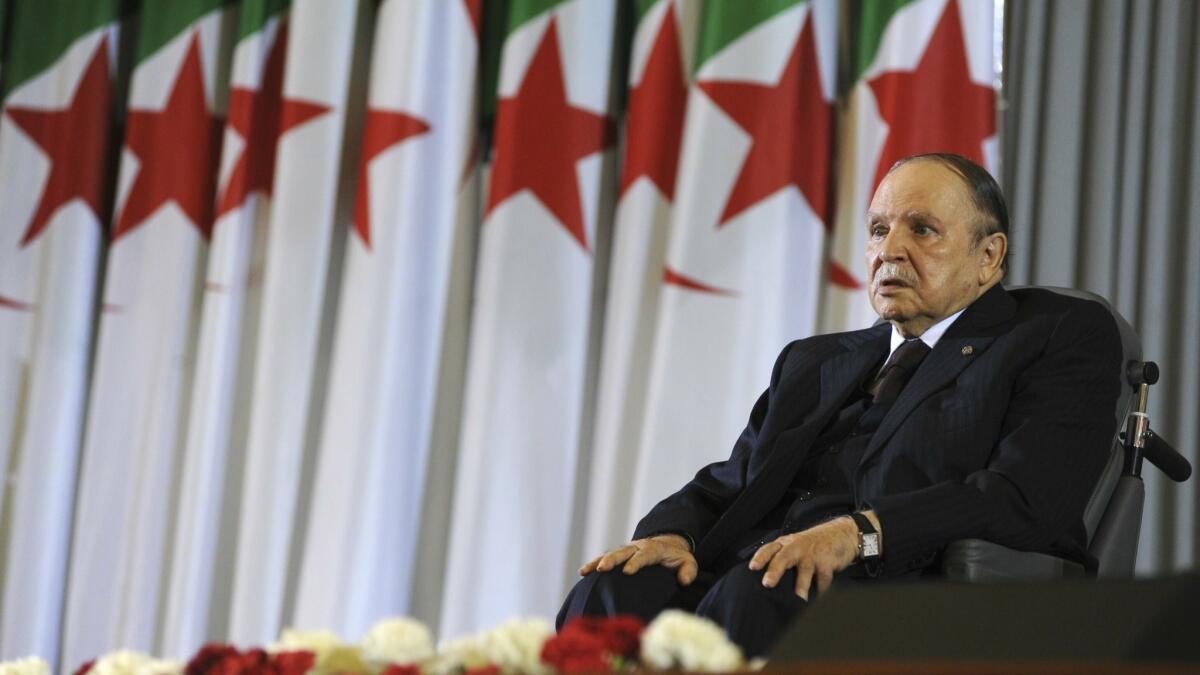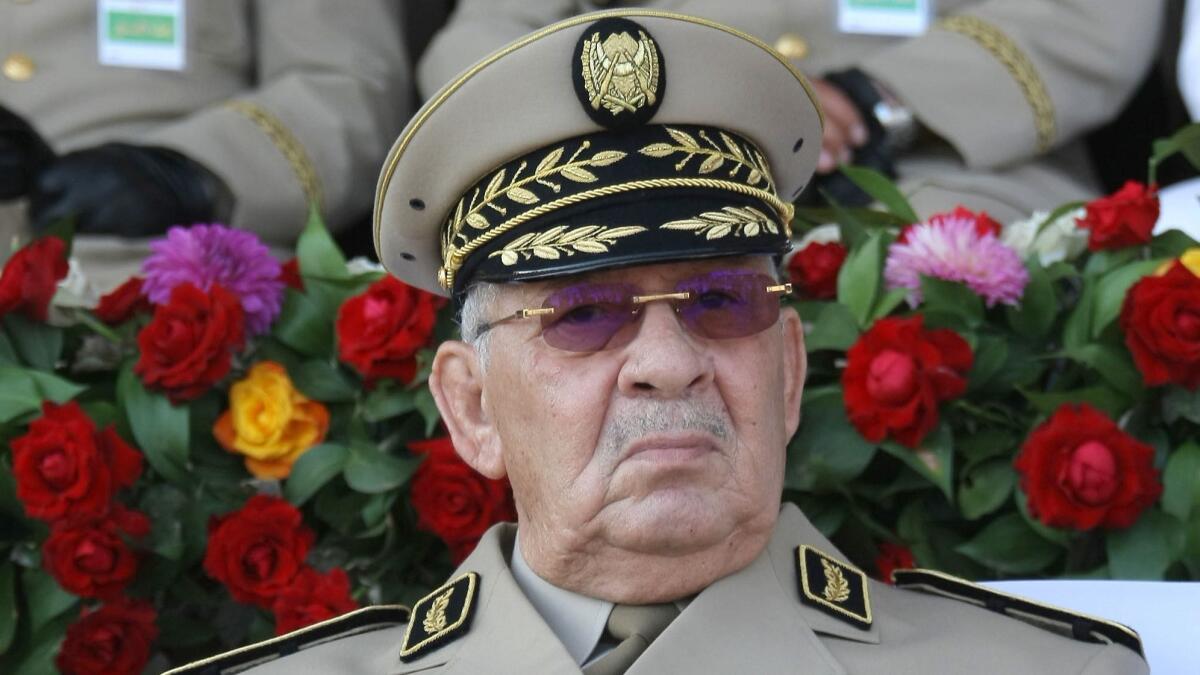Algerian army chief wants president declared unfit to lead

Reporting from ALGIERS, Algeria — Algeria’s powerful army chief said Tuesday he wants to trigger the constitutional process that would declare President Abdelaziz Bouteflika unfit for office, after more than a month of mass protests against the ailing leader’s long rule.
The Algerian army’s chief of staff is one of the country’s top power brokers, so the announcement by Gen. Ahmed Gaid Salah could pave the way for Bouteflika’s ouster after 20 years in power — or lead to a showdown with the president’s closest protectors.
The 82-year-old Bouteflika has rarely been seen in public since a 2013 stroke.
Gaid Salah said in remarks carried on Algerian television that “the only guarantee for political stability” is to apply the article of the Algerian Constitution that empowers the Constitutional Council to determine if the president is too ill to fully exercise his functions and to ask lawmakers to declare him unfit.
If the request receives two-thirds majority approval in parliament, the Senate president takes charge of the government until a presidential election can be held, according to the constitutional procedure.
Some protesters have called for the application of Article 102 during massive demonstrations that have been held in Algeria every Friday since Feb. 22.
They accuse Bouteflika and his entourage of corruption, hoarding the gas-rich country’s wealth and being out of touch with the concerns of ordinary Algerians, especially struggling youth.
“In this context, it becomes necessary, even imperative, to adopt a solution to get out of the crisis which reflects the legitimate demands of the Algerian people,” Gaid Salah said in his televised address from a military base in the southern city of Ouargla.
Gaid Salah has served as Bouteflika’s public defender so his remarks came as a particular surprise. However, another crucial figure, Constitutional Council President Tayeb Belaiz, is a close friend of Bouteflika, who had served as interior minister before becoming a presidential aide. He has headed the Constitutional Council since February.
Several opposition parties quickly reacted to the proposal, with the Rally for Culture and Democracy denouncing what it called “an attempted coup d’etat.”
“Gaid Salah is part of our misfortune. He can in no way be the solution,” the party spokesman, Yassine Aissiouane, said in a statement.
In contrast, the main moderate Islamist party, the Movement for a Peaceful Society, said the army chief’s proposal to allow the Constitutional Council to determine if the president is fit could lead to a solution — but only if measures responding to the people’s demands are taken first.

“The military institution should be limited to the role of an accompanist,” a party statement said.
Speeches by the army chief have been closely watched as he travels from region to region to inspect bases. The army has held a top role in the country’s power structure since Algeria won independence from France in 1962 after a brutal seven-year war. Gaid Salah recently softened his remarks, describing a link between protesters and the military.
Algeria had a presidential election scheduled for April 18, but Bouteflika announced in a letter this month that he was withdrawing as a candidate and delaying the vote in response to the protests. First elected in 1999, he has not addressed the nation in years. The stroke required him to use a wheelchair and weakened his voice.
Critics said the postponement was unconstitutional and alleged it amounted to a desperate bid to cling to power until the president’s entourage found a replacement who would continue corruption and other policies they are protesting.
Bouteflika’s March 11 letter said he planned to establish a national conference to draft a new constitution and to set a new date for the presidential election.
The president also dismissed his prime minister and appointed a new one the same day. Noureddine Bedoui, a Bouteflika loyalist, promised to form a new Cabinet within days to respond to the demands of Algeria’s demonstrators.
However, Bedoui is struggling to form a government, with many potential ministers trying to keep their distance from the unpopular president.
Bouteflika is credited with bringing peace to his nation after what Algerians call the “black decade” of the 1990s. During that period, extremists hoping to create an Islamic state battled security forces while carrying out village massacres and targeting journalists, intellectuals and foreigners.
More to Read
Sign up for Essential California
The most important California stories and recommendations in your inbox every morning.
You may occasionally receive promotional content from the Los Angeles Times.










